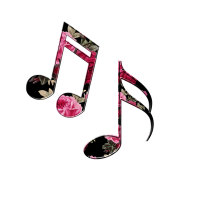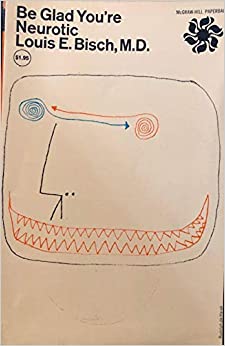By Gwen Rockwood, newspaper columnist and mama of 3
Do you remember the old game show called “Name That Tune”? There have been plenty of spin-offs and reboots of the show, but I remember the one on TV in the 1980s when I was a kid. Two contestants stood across from each other and wagered about how quickly they could name a tune before it was played.
 “Jim, I can name that tune in 5 notes.”
“Jim, I can name that tune in 5 notes.”
“Cathy, I can name that tune in 4 notes.”
“Jim, name that tune.”
Then someone would play the first 4 notes of the song, and Jim would have to cough up an answer.
Now that we’re on the tail end of a global pandemic and the beginning of some alarming advancements in artificial intelligence, maybe there should be a different, more modern version of this game. Instead of songs, contestants would have to predict disasters.
To make it extra competitive, all the contestants would be a tad neurotic – people like me who are Olympic-level overthinkers who can not only imagine but also rewind and replay worst-case scenarios. (We might as well use our inner turmoil to win money or a trip to Bermuda, right?)
“Gwen, I can name that tragedy in 4 possible outcomes.”
“Jim, not only can I name that tragedy in three “what-ifs,” I can also tell you about two Dateline stories just like it.”
“Gwen, name that tragedy.”
Then I’d crank up my mental worry machine and let loose a string of scenarios that would fuel Jim’s nightmares for years. (Jim should have known not to go up against a paranoid mother in a game like this.)
Is this a dark, ridiculous concept? Sure. But sometimes, we neurotic people have to laugh about our overactive imaginations because that’s better than curling into the fetal position to freak out about it. Besides, some experts say that being a tad neurotic is beneficial.
I stumbled across one of those experts a few weeks ago when I found a used book that cost me only two dollars in a second-hand store. I picked it up because the title – “Be Glad  You’re Neurotic” by Dr. Louis Bisch – made me laugh. It was published in 1936 by a psychologist who was also a fellow neurotic writer, so I immediately felt a kinship. I decided to buy it after getting a look at the chapter names, which include gems like this: “To Be Normal Is Nothing To Brag About,” “Are You Making the Most of Your Insomnia?” and “No, You’re Not Going Insane Nor Will Any of Your Fears Come True.”
You’re Neurotic” by Dr. Louis Bisch – made me laugh. It was published in 1936 by a psychologist who was also a fellow neurotic writer, so I immediately felt a kinship. I decided to buy it after getting a look at the chapter names, which include gems like this: “To Be Normal Is Nothing To Brag About,” “Are You Making the Most of Your Insomnia?” and “No, You’re Not Going Insane Nor Will Any of Your Fears Come True.”
The book was one of the first in a long line of self-help books that would follow for decades after its publication. The gist of the doctor’s message? Don’t worry about being such a worrywart. It just means you think about things more than the average bear.
Also, some of history’s most creative, unusual, and entertaining people were neurotic. Stand-up comedy wouldn’t even exist were it not for brave neurotics with a microphone and a sense of comedic timing. The world would be boring without a few weirdos to keep things interesting.
So, if you hear the voice of the Dateline narrator in your head, or you often think three steps ahead of any possible catastrophe, cheer up. Our cautious nature means we’ll never fall off a cliff while taking selfies. And our heightened attention to detail means we’d be great eyewitnesses in a trial.
As the good doctor said in 1936, be glad you’re neurotic.
Gwen Rockwood is a syndicated freelance columnist. Email her at gwenrockwood5@gmail.com. Her book is available on Amazon.
